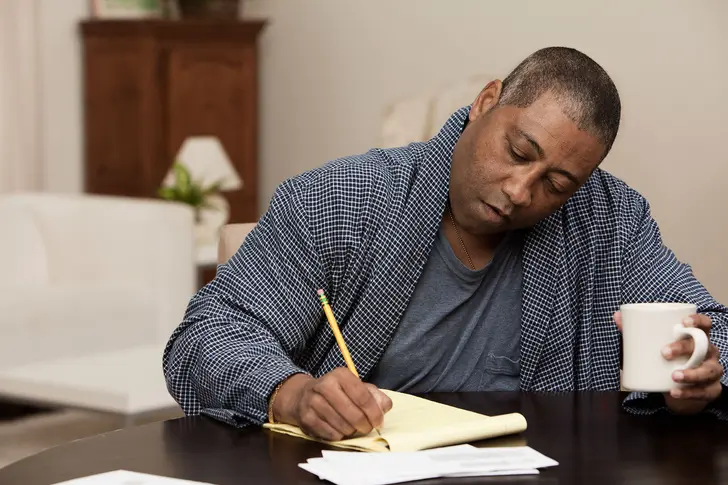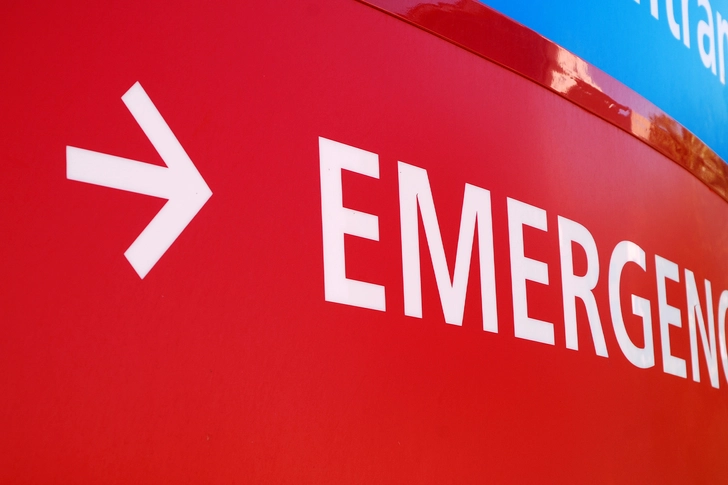- Overview
- Symptoms
- Causes & Risks
- Tests & Diagnosis
- Treatment
- Relapse
- Complications
- Living With
- Caregiving
- Appointment Prep
- View Full Guide
Direct Action: 10 Things to Include in a Plan for a Schizophrenic Flare-Up


Creating an Action Plan for Schizophrenia Flare-Ups
Creating an action plan for dealing with acute schizophrenic flare-ups can help you recognize them earlier. You may even be able to prevent a flare-up if you catch it early enough. Once you've put together your action plan, make sure the people around you know how to access it. Here are 10 things you should include in your action plan.

Healthcare Provider Information
Include a list of all of your healthcare providers and their contact information. You can also include which hospital you want to go to if that becomes necessary. Make a note of who your support person should contact first.

Contact Information for Supportive Family and Friends
Your action plan should include contact information for supportive family and friends that someone can call for you. If you're feeling unwell, you may not be able to contact them yourself. Someone who understands your warning signs and coping strategies may be able to walk you through your relapse strategies, though.

List of Medications
Include an updated list of all of your current medications. If you need treatment, it's important for your healthcare providers to know which medicines you're taking. Keep this list updated every time you start or stop a medication.

Personal Stressors
Part of your schizophrenia plan should include keeping track of your personal stressors, red flags, or triggers. These are the things that make you feel worse and disrupt your feelings of wellness. Along with each stressor, list some effective ways you've found for dealing with them.

Wellness Toolbox
Your wellness toolbox will include things you can do to make yourself feel better. These skills and strategies will be different for everyone, but they should include things that make you feel connected and hopeful.
Some possibilities include:
- Relaxation techniques
- Painting or drawing
- Going for a walk

Early Warning Signs
A list of early warning signs may help you prevent an acute schizophrenic episode. When you notice you're experiencing early signs, start self-monitoring closely and contact your mental health provider for support. Decide ahead of time what steps you'll take when you, or your trusted supporters, notice early warning signs, then include them in your plan.

Serious Signs
This section should include signs that you need immediate help. You can work with your mental health provider to decide what signs are serious enough that you need to take action immediately to avoid a crisis. Make a list of those signs and the specific steps you should take when they occur.

Tips for Helpers
It's a good idea to have a list of tips for people who may be trying to help you during the onset of an acute flare. Dealing with people who have schizophrenia isn't an intuitive process, so including tips such as the following can prevent them from making the situation worse:
- Don't try to talk someone out of a delusion or hallucination.
- Use active listening to help calm the situation.
- Reassure them their feelings are real.
- Get help right away if they're disoriented, don't know who you are, or don't know where they are.
- Take them to the emergency room if they've made a plan to take their life or someone else's.

Crisis Plan
No matter how dedicated you are, you may have a crisis. Don't feel guilty about it because it's not your fault. A crisis plan can outline exactly what your friends and family should do to help you if you experience a crisis. Writing it out in advance will let you stay in control of your schizophrenia even when you're out of control in the moment.

Post-Crisis Plan
Once a crisis has passed, you can learn from what happened and use your experience to refine your future plan. Add any new tools, strategies, or warning signs that you've identified to your plan. The post-crisis plan should also include a plan for you to return to your normal daily activities as soon as possible.
Photo Credits:
1.Hill Street Studios / Getty Images
2. JazzIRT / Getty Images
3. Maskot / Getty Images
4. Tetra Images / Getty Images
5. Maskot / Getty Images
6. aquaArts studio / Getty Images
7. Xuanyu Han / Getty Images
8. Severin Matusek / EyeEm / Getty Images
9. meshaphoto / Getty Images
10. Belinda Howell / Getty Images
11. Dougal Waters / Getty Images
SOURCES:
Living with Schizophrenia: "Preparing for Relapses."
The Schizophrenia Society of Canada: "Hope and Recovery."
Advocates for Human Potential, Inc.: "What Is WRAP?"